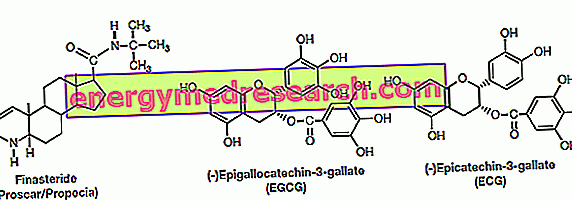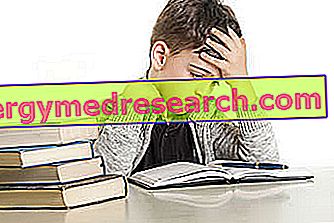Related articles: Post-Traumatic Stress Disorder
Definition
Post-traumatic stress disorder is a condition that affects people who have experienced a particularly stressful and traumatic event.
These "critical experiences" imply serious and painful injuries, the risk of dying or other serious threats to physical integrity, one's own or others; these situations cause reactions of horror, fear and feelings of powerlessness in the subject.
Post-traumatic stress disorder can be triggered by natural disasters (such as earthquakes, floods and fires), acts of terrorism, traffic accidents, air disasters, scenes of violence, serious illnesses and deaths of family and close friends.
Most common symptoms and signs *
- Acrophobia
- Aggression
- Agoraphobia
- alexithymia
- Hallucinations
- anhedonia
- anguish
- Anorexia
- Anticipatory Anxiety
- palpitations
- Claustrophobia
- Impulsive behavior
- Depression
- derealization
- Difficulty concentrating
- dysphoria
- Mood disorders
- Avoidance
- Flashback
- Nightmares
- Insomnia
- Restlessness
- Social isolation
- Nervousness
- Memory loss
- Loss of memories
- Confusional state
Further indications
Post-traumatic stress disorder presents with a series of symptoms that express psychological distress and distress; these manifestations begin from a few weeks after the original event (usually they begin within 3 months, but occasionally emerge even after years).
The triggering event can be relived with thoughts, images or perceptions that present themselves as intrusive and persistent memories, as if the situation was repeating itself again. The subject suffering from post-traumatic stress disorder can experience flashbacks, recurrent dreams and psychological reactivity to factors that symbolize the trauma experienced.
Moreover, the sufferer tries persistently to avoid in a physical and psychic way the situations and the elements that remind them of the traumatic event, such as places, people, activities, thoughts and feelings. The person manifests difficulty in remembering, feelings of detachment or extraneousness towards others, reduction of affectivity and interest in participation in significant work and social activities.
Other symptoms associated with post-traumatic stress disorder include: irritability, anxiety, tantrums, exaggerated alarm responses, concentration problems, depression, difficulty falling asleep and maintaining sleep.

The course of the disease varies; some patients recover within 6 months, while others have symptoms that last much longer. Among the consequences of post-traumatic stress disorder alcohol abuse and drug use are not uncommon.
The diagnosis can be established if the manifestations associated with the condition have persisted for at least a month. The treatment of post-traumatic stress disorder necessarily requires a cognitive-behavioral psychotherapeutic intervention, which facilitates the processing of the trauma until the symptoms disappear.



